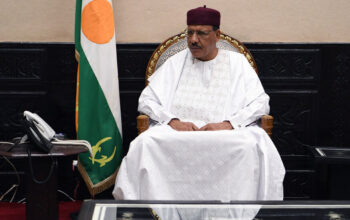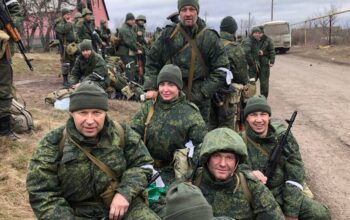
MUNICH — A Nobel Peace Prize winner from South America has warned that the West’s heavy focus on Russia’s invasion of Ukraine risks alienating much of the rest of the world, which is dealing with the consequences of higher energy and food prices stemming from the war.
“Ukraine is sucking all the energy, when there are more than 100 conflicts currently in the world,” said Juan Manuel Santos, the former president of Colombia. “There is a dissonance here” with the global south, he said. “And if this war prolongs itself, the risk of finding less and less support for it is very real.”
Mr. Santos spoke to The New York Times over the weekend on the sidelines of the Munich Security Conference, where leaders from the United States and other Western nations redoubled their commitment to supporting Ukraine. He said that he told Ukraine’s president, Volodymyr Zelensky, during a visit to Kyiv in August “that you have to do more outside Europe to find and maintain support in Latin America and Africa,” given the economic costs of the war to the world’s poor.
Mr. Santos said that there is general recognition that Russia is the aggressor in Ukraine. “But realities change the perceptions of people,” he went on. “They’re concerned about the price of oil and lack of food. And when you say that, well, ‘Brazil can invade Colombia,’ they laugh, because it’s a hypothetical. They want their food.”
Other leaders in Munich also expressed worries about perceptions of the war in the global South, but Mr. Santos was considerably blunter about the extent of the problem.
Mr. Santos won the Nobel Peace Prize in 2016 for his efforts to negotiate a peace deal with the Colombian rebel group known as the Revolutionary Armed Forces of Colombia, or FARC, but only after heading a tough military campaign against them.
Slogans do not bring about peace, he said, and negotiations to end conflict tend to be messy and morally fuzzy.
“There is always a moral dilemma in every conflict and every peace process,” he said. “There is the conflict between peace and justice.”
The end often hinted at in the West is Ukraine winning a complete victory, which Mr. Santos regards as unrealistic because armies and populations become exhausted and conflicts become unsustainable.
“Sometimes you need to think about ending the war before winning the war,” he said.
Mr. Santos, now 71,
said that much of the global South sees “hypocrisy” in the West’s constant references to the U.N. charter. Russia, a member of the Security Council, has clearly violated the charter, he acknowledged. But other conflicts do not generate the same level of outrage in Washington and in European capitals, he said, citing the long Israeli-Palestinian struggle and the steady increase of Israeli settlements on occupied land.
“This is also a violation of international law, and there the big powers stay silent,” he said.
The focus on Ukraine has also taken attention away from fighting climate change, he said, adding: “That is a much more worrisome challenge that we face.”



